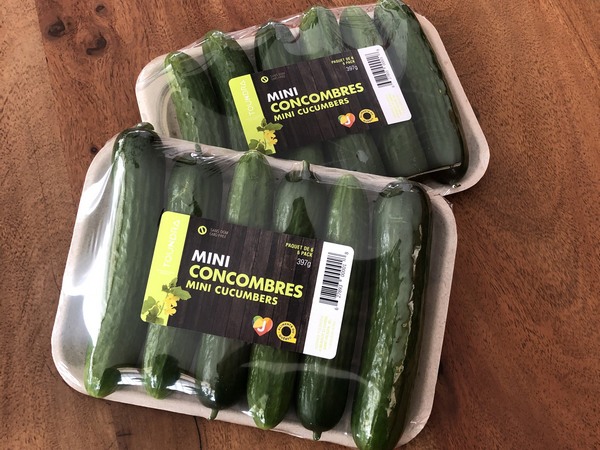Demand for packaging has increased in the past few weeks as consumers increase at-home meals and feel insecure about buying bulk product that others may have touched. Although the coronavirus doesn’t transmit through food, retailers’ demand for packaged products is soaring. “We are seeing an increase in demand for packaging across the board,” says Shannon Boase with CKF, Inc. The company manufactures traditional foam packaging, rPET plastic as well as a sustainable alternative in the form of thermoformed and rough molded pulp.
Shift from bulk to packaged
“First of all, we are seeing an increase in demand from our existing customers,” said Boase. Because of increased demand for packaging from the retail side of business, companies are starting to package products that weren’t typically packaged. According to the results of a Canadian market survey from Abacus Data, consumers do perceive some risk in unpackaged fresh fruits and vegetables. Fresh vegetables not in packaging were considered too risky by 14 percent while 57 percent of survey respondents said they are somewhat risky. The numbers for fresh fruit were similar (15 percent versus 58 percent respectively). Fresh vegetables and fruits in plastic packaging on the other hand, were only considered too risky by 4 and 6 percent respectively, suggesting consumers feel safer buying packaged product.

Supply interruptions for Foam and PET
“We also picked up business from new customers who are using foam and PET packaging but are facing supply interruptions,” Boase shared. Demand for foam and PET has increased significantly for all food products. “We have viable sustainable substitutes to foam and rPET like our Earthcycle thermoformed molded pulp trays and punnets as well as our Shopak rough moulded pulp trays.” As an example, Boase mentioned the mini cucumber segment. “Many greenhouse growers were packaging in foam and PET, but because of supply shortages, we’ve been able to fill their demand with our Earthcycle trays.”
Not only is the availability of molded pulp trays plentiful, Boase also makes a case for this type of packaging being the safest. A study published in the New England Journal of Medicine found that the coronavirus can remain viable and infectious up to 24 hours on cardboard and up to 2-3 days on plastic.
More demand from Europe
Earthcycle, CKF’s sustainable packaging brand, is certified home compostable to European standards and is widely recyclable in wastepaper streams. “We are the largest thermoformed molded pulp manufacturer in the world. Since all our plants are deemed an essential service by the Canadian government, we will be able to supply the fresh produce industry with the packaging they need,” Boase said.
Outside North America the company has noticed increased demand for packaging in Europe. “We are shipping by ocean freight from Halifax to Europe. Our Nova Scotia plant is only 45 minutes away from the Halifax port and from there, it’s 10 days on the water to most major European ports.” In addition to Nova Scotia, CKF, Inc.’s production plants are located in British Columbia and Ontario.
For more information:
Brad Dennis
Vice President, Sales and Marketing
CKF, Inc.
Tel: (416) 249-2272
bdennis@ckfinc.com
www.ckfinc.com
